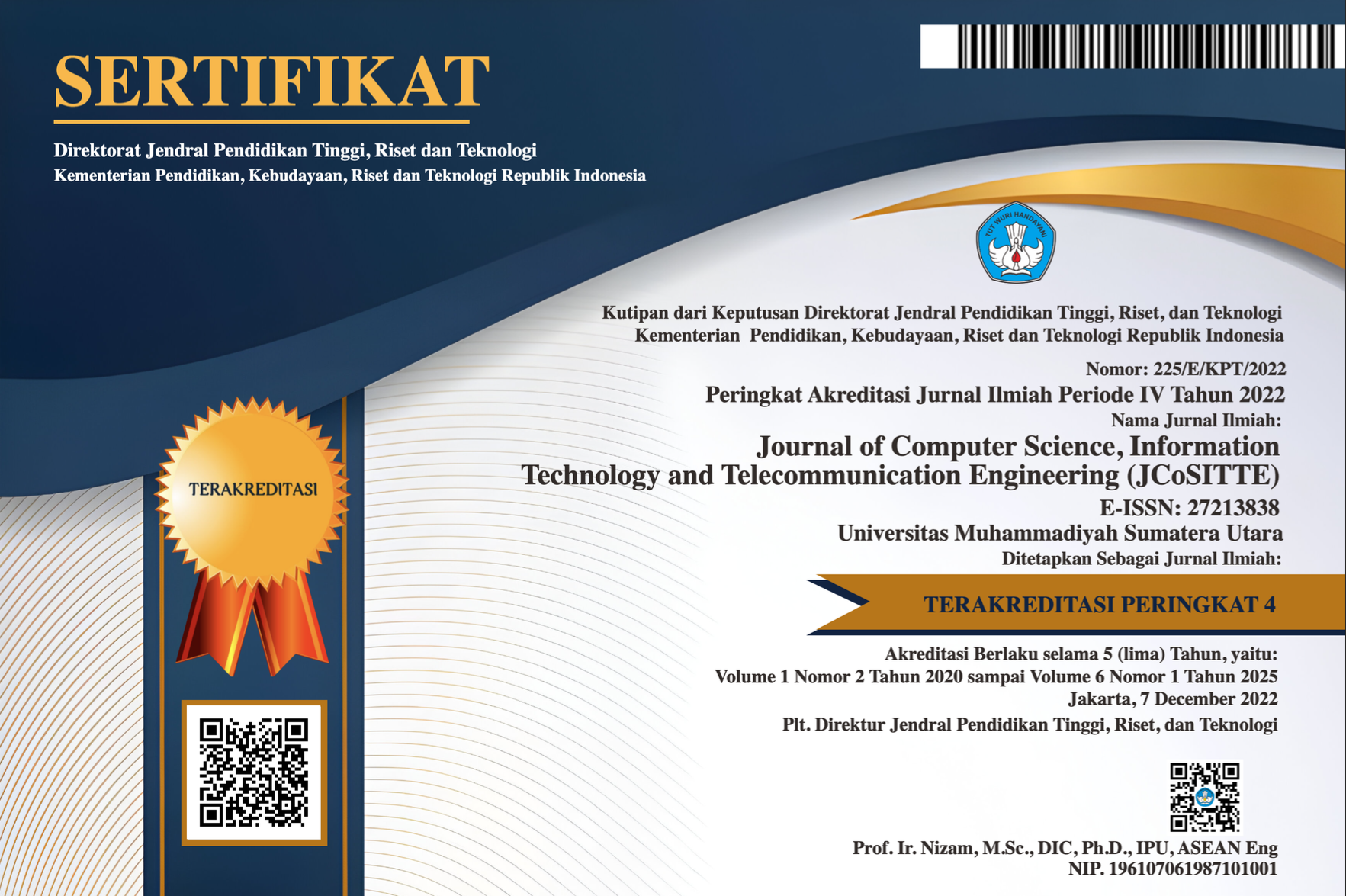Measurement of Security Awareness Level in the Implementation of Quick Response Code Indonesian Standard
Abstract
Keywords
Full Text:
PDFReferences
Akraman, R., Candiwan, C., & Priyadi, Y. (2018). Pengukuran Kesadaran Keamanan Informasi Dan Privasi Pada Pengguna Smartphone Android Di Indonesia. Jurnal Sistem Informasi Bisnis, 8(2), 115-122, doi: 10.21456/vol8iss2pp115-122
Bank Indonesia. (2023). Bank Indonesia Edukasi Masyarakat dan Pedagang/Merchant Agar Terhindar dari Upaya Penyalahgunaan QRIS [Online]. Available at: https://www.bi.go.id/id/publikasi/ruang-media/news-release/Pages/sp_259323.aspx
Fauzi, F., Al-Khowarizmi, A. K., & Muhathir, M. (2020). The e-Business Community Model is Used to Improve Communication Between Businesses by Utilizing Union Principles. JITE (JOURNAL OF INFORMATICS AND TELECOMMUNICATION ENGINEERING), 3(2), 252-257.
Hardani, et al, (2020). Metode Penelitian Kualitatif & Kuantittif. Yogyakarta: CV Pustaka Ilmu Grup.
Kencana Sari, P., & Candiwan. (2014). Measuring information security awareness of Indonesian smartphone users. Telkomnika (Telecommunication Computing Electronics and Control), 12(2), 493–500, doi: 10.12928/TELKOMNIKA.v12i2.2015
Kruger, H. A., and Kearney, W. D. (2006). A prototype for assessing information security awareness. Computers and Security, 25(4), 289-296, 2006, doi: 10.1080/10691898.2019.1665485
Lebek, B., Uffen, J., Neumann, M., Hohler, B., & Breitner, M., H. (2014). Information security awareness and behavior: a theory-based literature review. Management Research Review, 37(12): 1049-1092.
McCormac, A., Zwaans, T., Parsons, K., Calic, D., Butavicius, M., & Pattinson, M. (2017). Individual differences and Information Security Awareness. Computers in Human Behavior, 69, 151-156. doi: 10.1016/j.chb.2016.11.065
Nabila, A. P., Raharso, S., Tiorida, E., (2025). The Influence of Trust and Transaction Security on Interest in Using The QRIS Payment System. Airlangga Journal of Innovation Management, 06(2), 248-260. doi: https://doi.org/10.20473/ajim.v6i2.72597
Saskia, C., & Pertiwi, W., K. (2023). Modus Penipuan QRIS Palsu, Pengamat Usulkan Standar Keamanan Perbankan [Online]. Available at: https://tekno.kompas.com/read/2023/04/13/17370087/modus-penipuan-qris-palsu-pengamat-usulkan-peningkatan-standar-keamanan
Setiyono, T., A. (2020). Indonesian’s Acceptance of Non-Cash Transaction Using QRIS. Economics, Business and Management Research, 169, 141-144.
Sriekaningsih, A. (2020). QRIS dan Era Baru Transaksi Pembayaran 4.0. Yogyakarta: ANDI.
Sugiyono. (2018). Metode Penelitian Pendidikan Pendekatan Kuantitatif, Kualitatif, dan R&D. Bandung: Alfabeta.
Taufiq, R., & Betty, P. (2023). Measurement of Information Security Awareness Level: A Case Study of Mobile Banking App Users to Prevent Social Engineering, Journal of Syntax Idea, 5(1), 86-98.
Utami, B. (2024). The Impact of the QRIS Payment System on the Digital Economy Development. Jurnal Ekonomi dan Bisnis, 1(3), 141-148.
DOI: https://doi.org/10.30596/jcositte.v6i2.26050
Refbacks
- There are currently no refbacks.





.png)

